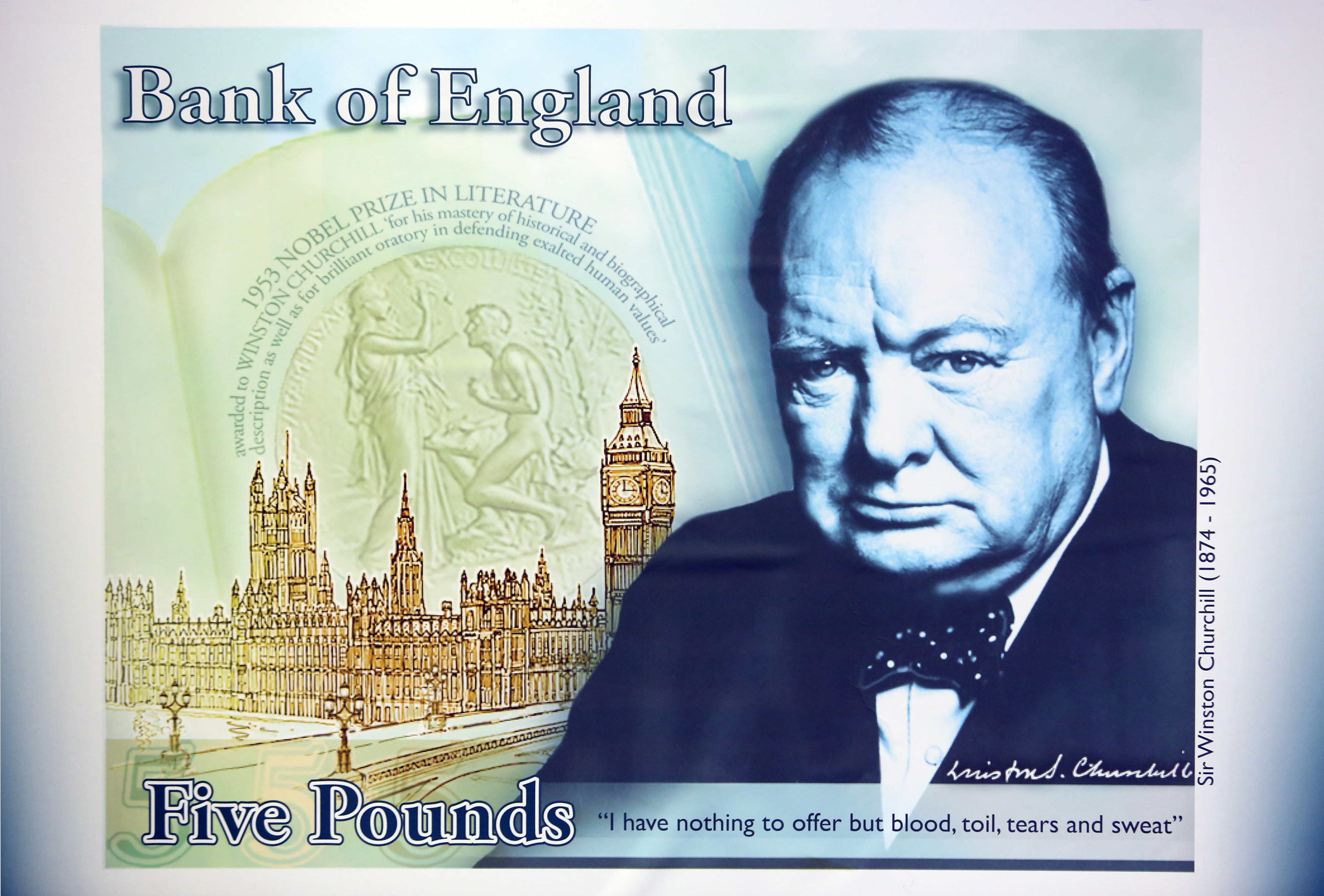
A bronze bust of Winston Churchill, displayed in the White House since the 1960s, has been the object of a continuing right-wing canard in Washington. The story goes that when President Barack Obama moved in, he returned the bust to the British Embassy, supposedly signifying his hatred of Britain. In fact, Obama did no such thing. The bust still stands in the White House Residence, where it always did, except for a short time under President George W. Bush when it was being repaired.
But Obama might have done well to remove the bust. The cult of Churchill has not been an altogether beneficial one for the United States. Too many US presidents fancy themselves Churchill’s true heirs. Bush had a copy of Churchill’s bust, lent to him by Tony Blair, in the Oval Office. He liked to portray himself as a “war president,” a “decider,” and a “great leader,” like Churchill. He had a taste for battle dress. And he got his country into a very foolish war.
Donald Trump’s British crony, Nigel Farage, the former leader of the UK Independence Party, suggested that Trump should put the bronze bust back in the Oval Office. Trump thought this was a splendid idea.
Trump is the least appropriate figure to cast himself in Churchill’s mold. Insofar as he has a coherent position on anything, he is hostile to most of the things that Churchill stood for.
His “America first” posture, standing aloof from Western allies, is exactly the kind of attitude against which Churchill and Franklin D. Roosevelt struggled in order to successfully resist Hitler’s Third Reich.
The summer before the Japanese attack on Pearl Harbor, 75 years ago this month, Churchill and Roosevelt met in Placentia Bay, Newfoundland, to set out their ideals for a postwar world. The resulting Atlantic Charter included everything Trump seems to be against: Lower trade barriers, economic cooperation, and the advancement of social welfare.
Once Hitler was defeated, Churchill was also a proponent of European unification, even if he remained ambivalent about Britain’s role in the future union. Farage’s campaign for Brexit, often pilfering Churchill’s own wartime rhetoric about Britain’s finest hour in defending freedom against tyranny, was aimed at dismantling the very project Churchill favoured.
The “special relationship” between the US and Britain, established during WWII, was never as substantial as Churchill and others liked to believe. The US, as the dominant postwar power, pursued its own interests, whether the British liked it or not. And British pride in standing alone against Nazi Germany, and the self-aggrandising notion of being America’s special partner, has prevented the United Kingdom from playing to its full strength as a major power inside the EU.
American leaders sometimes pay lip service to the special relationship, to flatter visiting British prime ministers or get the UK onside in dubious military adventures. There is talk of giving the relationship a new lease of life in the age of Trump and Brexit. Whereas Obama warned that Britain outside the EU would be at the back of the queue for special trade deals, House Speaker Paul D. Ryan recently stated that the US should quickly make a new deal with Britain to show “solidarity” with an “indispensable ally.”
A special US tenderness for Brexit Britain – Trump oddly referred to himself as “Mr. Brexit” – rather suggests the solidarity of two countries embarking on their own forms of economic nationalism. Again, this is precisely the route that Churchill and Roosevelt sought to avoid; after all, economic nationalism was one of the reasons why Europeans almost succeeded in destroying their continent.
Of course, Trump’s love of Brexit may be just a question of words, like so much else about the great showman. It is hard to imagine the US jeopardising its economic interests by favouring Britain at the expense of far bigger stakes in the rest of Europe.
But words do matter, as Churchill knew well. Again, the rhetoric of Trump and his supporters, and of the Brexiteers, could not be further removed from the spirit of the Atlantic Charter. Talk of sinister international bankers and other “citizens of nowhere” (British Prime Minister Theresa May’s phrase) undermining, in league with rootless liberal elites, “ordinary,” “real,” and “decent” people (Farage) smacks of the anti-Semitic propaganda that swirled around Europe in the 1930s. And Churchill’s response to the flirtations of Trump and the European far right with Vladimir Putin’s Russia can easily be imagined.
None of this means that Churchill was always right, let alone a figure to emulate. He was the right man in 1940 to raise British morale, when morale was about the only thing the British had going for them. But he is not a good model for politicians in less perilous times. His views of colonial rule were already out of date before the war, and became a racist anachronism after it. His romantic ideas about the moral superiority of the English-speaking peoples were old-fashioned during his lifetime, and are an arrogant absurdity now.
But Churchill was neither petty nor provincial. His vision, at least as far as the Western world is concerned, may have been romantic, but it had a certain nobility. The same cannot be said of the next occupant of the White House. The idea of Trump, advised by Farage, using Churchill’s bronze head as a totem would have filled the old man with horror. - Project Syndicate